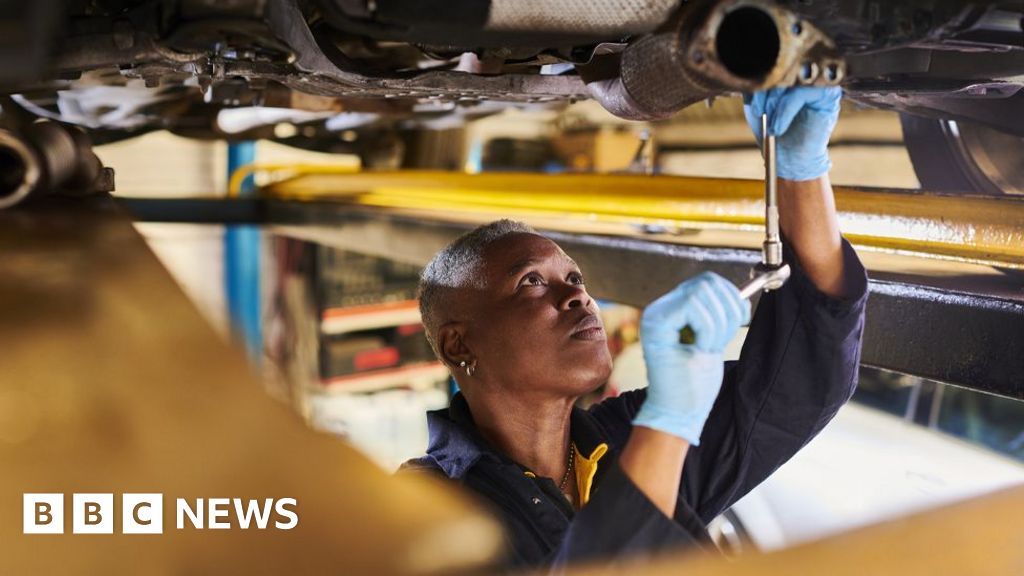ARTICLE AD BOX
By Oliver Smith
Business reporter, BBC News
Image source, Getty Images
The boss of energy regulator Ofgem has told MPs that he accepts the watchdog could have been tougher on the financial regulation of energy firms.
Jonathan Brearley said a "different", "tougher", kind of regulation would be needed in the future.
His comments come days after it was announced millions of households will typically pay an extra £693 a year on their energy bills from April.
Some 28 energy companies have stopped trading in the UK since last August.
More than four million customers have seen their energy supplier fold as firms collapsed under the weight of spiralling wholesale gas prices.
"Financial regulation needs to be tougher," Mr Brearley told MPs on the Business, Energy and Industrial Strategy Committee.
"We need a retail sector that's more resilient and more able to deal with the kind of shock that we've seen," he said.
"To be clear chair, we accept that had we done that earlier, this would have been better for customers."
Ofgem has drawn criticism from the likes of Citizens Advice over the collapse of energy firms, as well as from failed suppliers.
Citizens Advice blamed Ofgem in December for a "catalogue of errors" that it claims left the energy market in a precarious position when gas prices were high.
In a report, it questioned why the regulator fail to act on 10 separate warnings about Avro Energy before the company failed, and why it scaled back enforcement activity.
Rising gas prices have meant that the regulator was obliged to announce a rise in the cap that limits what companies can charge consumers in England, Scotland and Wales.
The higher cap means a typical household will pay £1,971 a year from April, 54% more than they pay now, with a further rise expected in October.
The £693-a-year rise will affect 22 million households, with 4.5 million customers on prepayment meters facing an even bigger increase of £708 a year.
Mr Brearley has told the BBC that the collapse of energy firms contributed about £68 towards that increase.
Many suppliers that failed blamed the energy price cap for preventing them from charging customers the true cost of energy.
The watchdog now wants to review the price cap every three months, instead of every six months at present. It reckons the change would help bring some stability for consumers and firms in fast-moving market.
Why are UK energy prices so high?
However, Mr Brearley warned MPs that customers could face further price rises when the price cap level is changed again in October, particularly if tensions between Russia and the Ukraine escalate.
The UK sources very little of its gas from Russia - less than 5%. But any economic sanctions introduced by the West in the event of an invasion could lead Russia to cut off supplies.
"If Russia invades Ukraine that would drive high gas prices and ultimately feed through to customers," Mr Brearley said.
He also suggested that coming up with any alternative form of regulation would need to involve energy customers, consumer groups and suppliers themselves to get it right.
"If we're moving, as I suspect we are, to a sector which is less reliant on switching as the only mechanism to drive up performance and to manage price, then we will need to form a different kind of regulation.
"I think we could build out of this a retail sector that is suitable not only to manage these problems but to get us closer to our net zero targets in a cost effective way", he said.

 2 years ago
47
2 years ago
47








 English (US)
English (US)